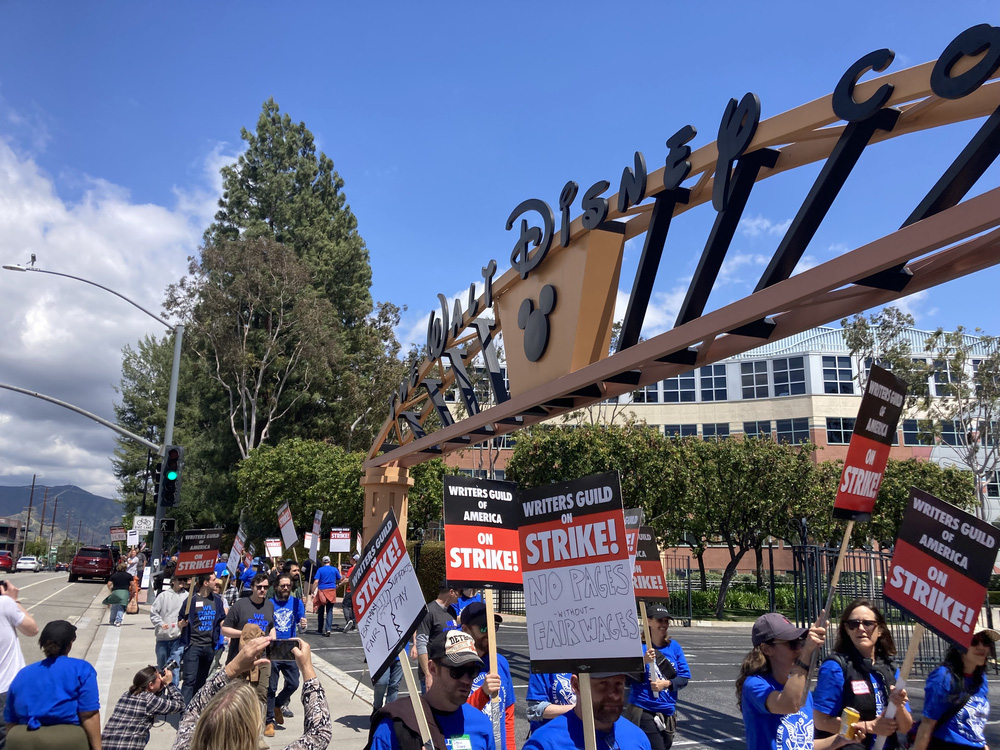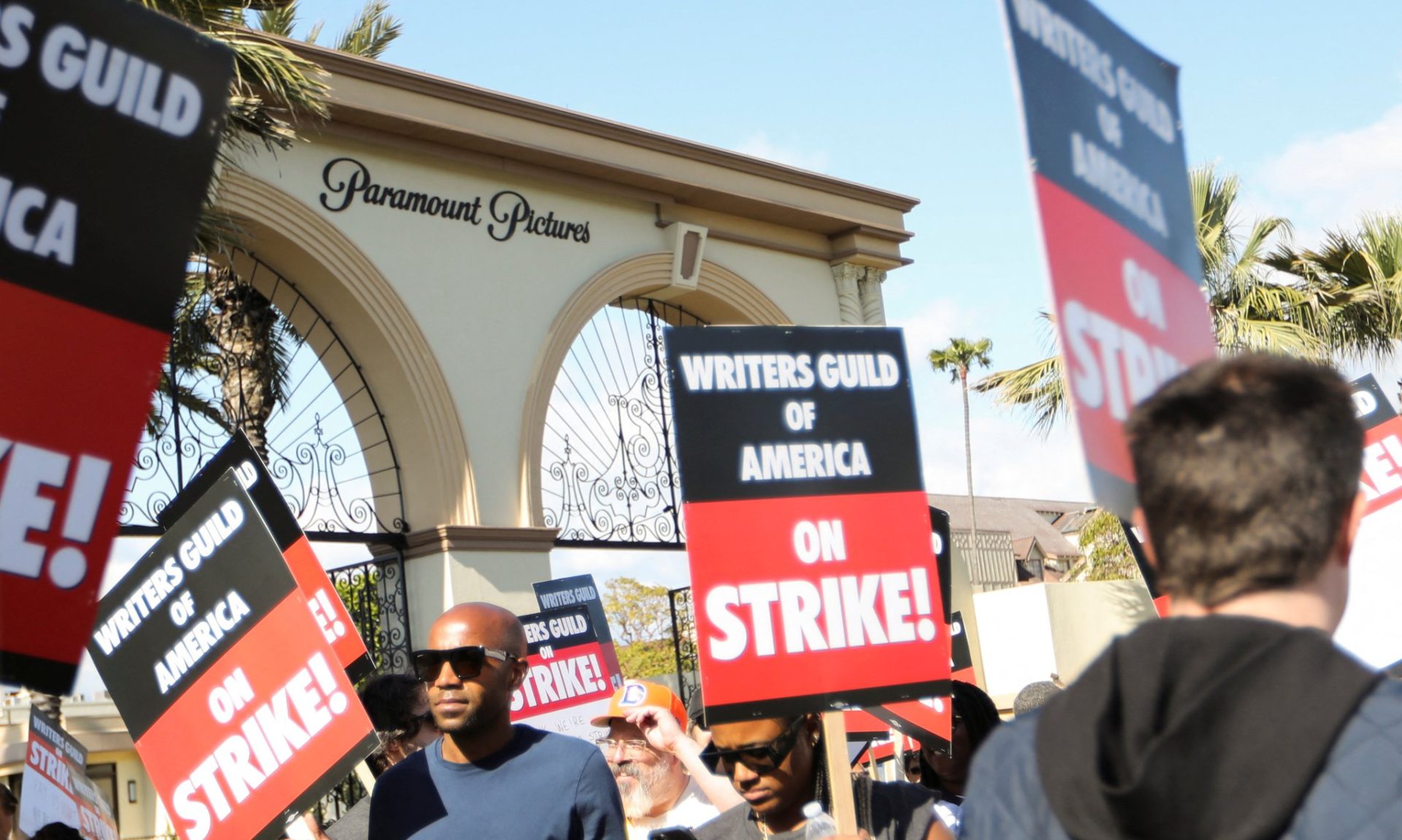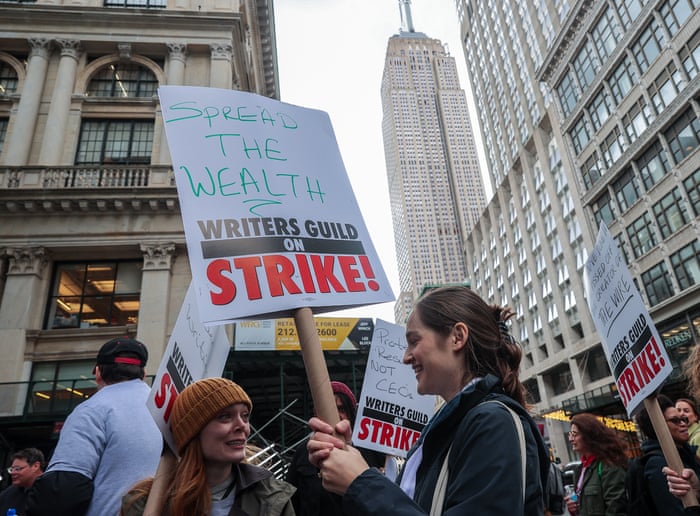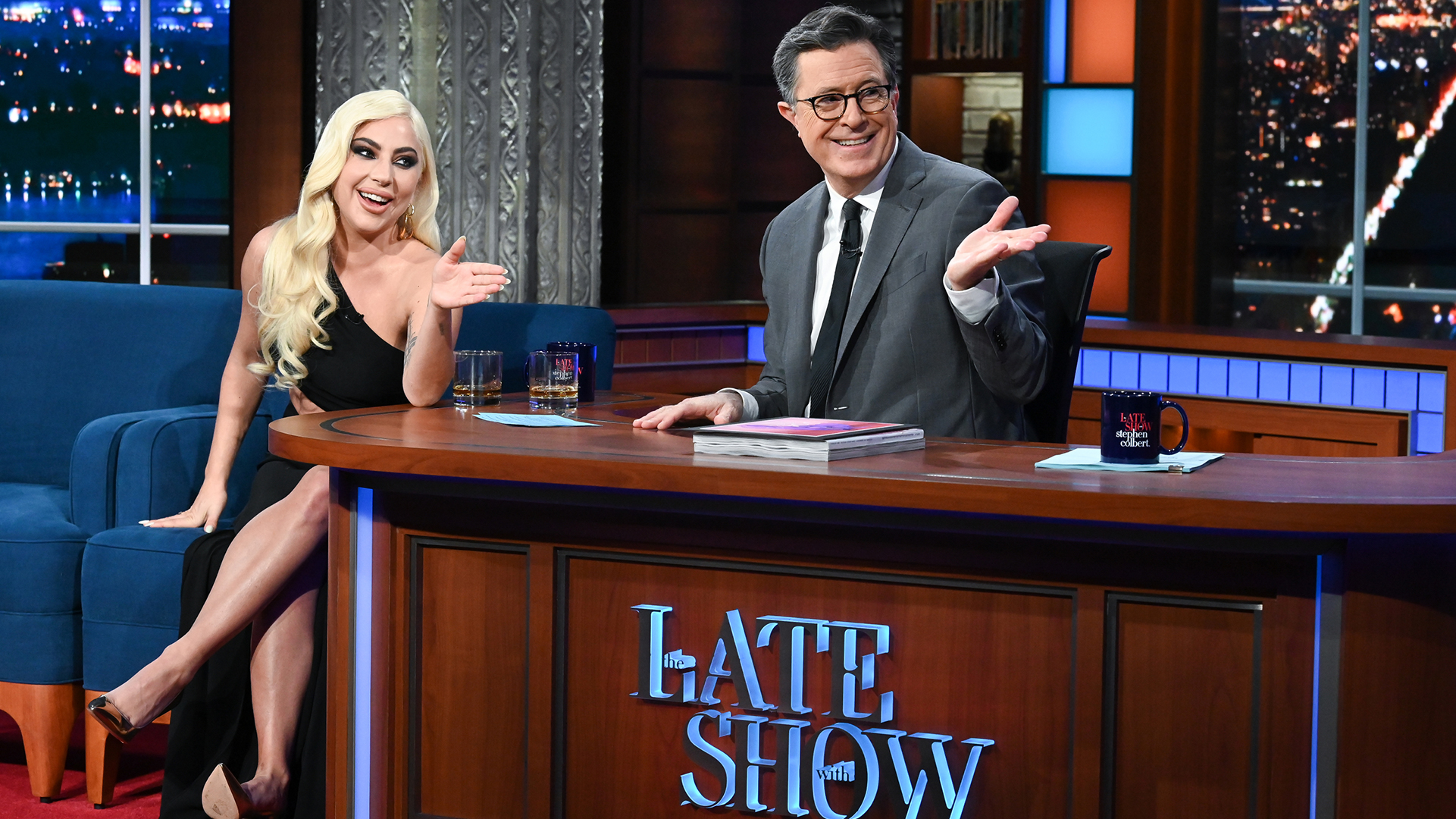The Writers Guild of America (WGA) has called for work stoppages for the first time in 15 years as the industry grapples with the streaming boom.

Hollywood production has come to a halt after thousands of film and television screenwriters went on strike – after last-minute salary negotiations with major studios broke down.
The Writers Guild of America (WGA) has called for a shutdown for the first time in 15 years after failing to reach an agreement on higher wages, pitting 11,500 of its screenwriters against longstanding defense firms. , such as Universal, Paramount, and Walt Disney, as well as newcomers like Netflix, Amazon, and Apple.
The most recent wave of strikes, in 2007, lasted 100 days and cost the California economy an estimated $2.1 billion as producers shut down production and writers, actors, and actresses stopped working. Manufacturers strike to cut spending.


The WGA says the companies’ behavior has “created a gig economy” that aims to make writing a “completely freelance” profession. “For the sake of our present and our future, we have no other choice,” they wrote.
In an interview with Deadline, WGA West president Meredith Stiehm said screenwriters are facing “an existential threat.”
“We’ve been here six weeks talking to them and those core recommendations have been literally ignored. And we’ve made it very clear to them that 98% of our members are asking. we were fighting for something different, not just the usual negotiation we were having… and that was ignored.”

WGA members began protesting outside Hollywood studios and in New York on Tuesday (US time). In the afternoon in Los Angeles, screenwriters wearing blue WGA T-shirts showed up all over the city.
“Fist up, put down your pen! LA is a union town!” – The screenwriters chanted as they marched outside Amazon Studios in Culver City. Car after car honked in support as they rolled.
Jonterri Gadson, who leads the choir, moved to Los Angeles in 2019 to fulfill his goal of becoming a comedy writer and has worked on shows featuring Chris Rock, Kelly Clarkson, Amy Poehler and Nick Offerman.
‘It’s a dream and I want it to pay me a living wage’.
Jonterri Gadson said.
Among the more than 150 people marching outside the Amazon was Erika L Johnson, who served as an assistant in Hollywood during the protracted 2007 writers’ strike.
“This time, we hope it’s short. There’s no way to know,” Johnson said. “Nobody wants it to last, but we’re willing to do what needs to be done.”
Writing can be a lonely job, Gadson says, which makes her appreciate the energy that screenwriters put together during this strike.
“It’s good to know that we are all fighting together, that we won’t be alone in this,” she said.
In New York, Greg Iwinski – a screenwriter who has left many marks on the shows of Stephen Colbert and Jon Oliver – said the WGA strike was necessary because the streaming services tried to keep the shows apart. screenwriters from what they know best – how to connect with an audience.
“There’s a lot of accumulated wisdom in television and in Hollywood, and it’s worked well and profitably for many years,” he said. Streamers have come in and tried to test how little it takes. work to create entertainment and separate artists from their own success and employment”.

The Union of Film and Television Producers (AMPTP), which represents the studios, said late Monday that it had offered a “gentle pay raise” to screenwriters, but the two sides were unable to. reach an agreement.
It said manufacturers were prepared to increase their salary and surplus offers, but were “unwilling to do so given the importance of other proposals still on the table” – such as requires companies to hire a certain number of screenwriters for a specified period of time in a show, “needed or not”.
Screenwriters say they struggled financially during the TV streaming boom, partly due to shorter seasons and smaller residual payouts. According to WGA statistics, half of TV drama writers now work for the minimum wage, compared with a third in 2013-2014. Average salaries at the higher writer/producer level have fallen 4% over the past decade.
For viewers, the most immediate effects of the strike will be felt in the late-night sketch and talk shows. All of the top late-night shows, using teams of screenwriters to come up with their thematic jokes, instantly fell into the dark, including The Tonight Show with Jimmy Fallon, Jimmy Kimmel Live and The Late Show with Stephen Colbert, using teams of screenwriters to deliver their content.
Saturday Night Live, which had been scheduled to air the new episode on Saturday, will also switch to evening and will rebroadcast previous shows instead.
‘Everyone including me hopes both sides reach an agreement. But I also think that the writers’ requests are not unreasonable’.
Host Stephen Colbert said on Monday’s Late Show.

“This country owes a lot to unions. Unions are the reason we have weekends, and in other words why we have TGI Fridays,” Colbert said.
At the Met Gala Monday night, Fallon said he’d like to see a fair deal agreed to for the screenwriters. “I really need my scriptwriters, I don’t have a gig without my scriptwriters,” he said.
Further, the strike could lead to a delay in the fall season in the US, for which writing for the season usually begins in May or June. If the strikes continue, the networks will increasingly fill up with reality shows, news magazines, and unscripted reruns.
Media companies are facing a difficult economic situation. Corporations are under pressure from Wall Street to make their streaming services profitable after investing billions of dollars in programming to attract subscribers. Last year, Netflix’s market value fell by nearly $45 billion after predicting a drop in new subscribers.

Meanwhile, the rise of streaming has led to a drop in TV ad revenue as traditional TV audiences shrink and advertisers move elsewhere.
The WGA also wants protections to prevent studios from using AI to create new scripts from a writer’s previous work, and writers want to make sure they’re not being asked to rewrite draft scripts due to AI. create.
Other entertainment industry associations, including the actors association SAG-AFTRA and the Directors Guild of America – both of which are expected to negotiate with AMPTP in the near future – have issued statements of support. . In the United Kingdom, the Writers’ Association of Great Britain (WGGB) advises its members not to work on projects under the jurisdiction of the WGA during the strike.








